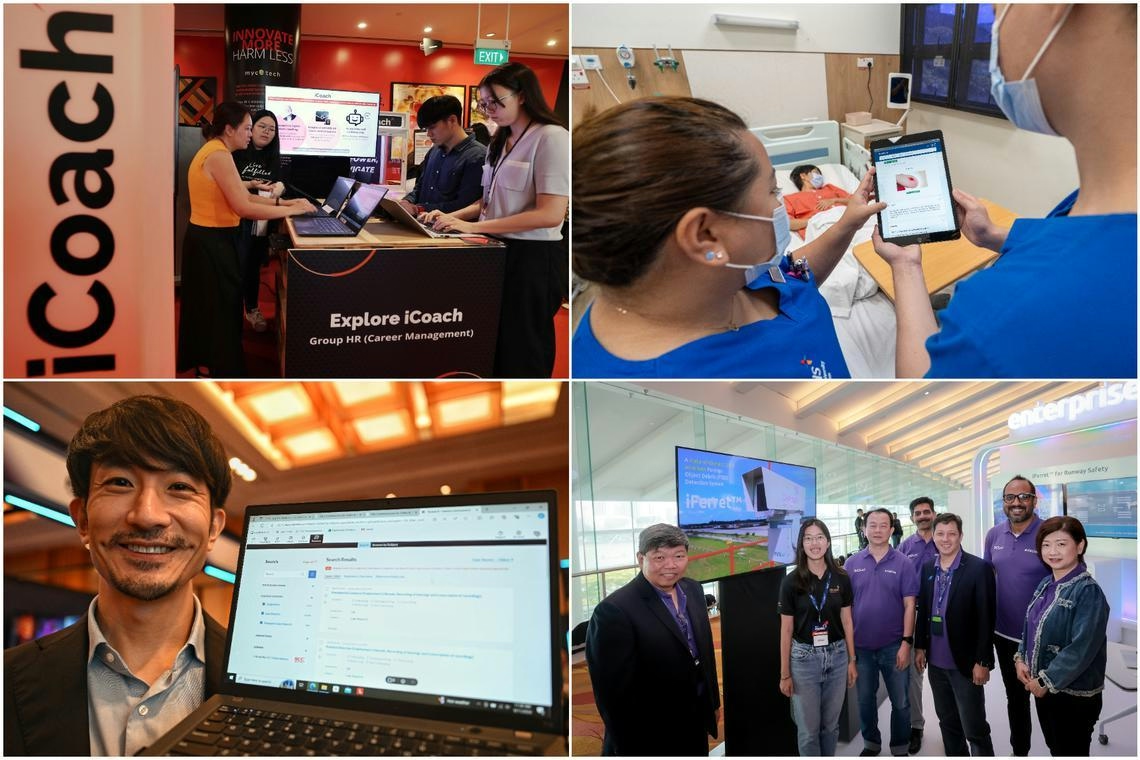AeroGenie — Tu copiloto inteligente.
Tendencias
Categories
Singapore Workers Begin Early Adoption of AI Across Aviation and Healthcare

Singapore Workers Begin Early Adoption of AI Across Aviation and Healthcare
Singapore is intensifying its efforts to establish itself as a leading artificial intelligence (AI) nation by expanding AI adoption across its workforce of 3.5 million. The government aims to move beyond the current target of 15,000 AI practitioners, encouraging professionals such as lawyers, accountants, and doctors to harness AI’s practical benefits in their daily work. Minister for Digital Development and Information Josephine Teo highlighted this vision during an AI conference on July 22, underscoring the importance of widespread AI integration for a small nation competing against global powerhouses like the United States and China.
Early AI Integration in Key Sectors
The early adoption of AI is already evident in several industries, including banking, law, healthcare, and aviation. In the banking sector, DBS Bank, Southeast Asia’s largest lender, has introduced iCoach, a generative AI-powered virtual career coach. This tool, available to employees across Singapore, Indonesia, China, Taiwan, Hong Kong, and India, provides personalized career guidance, identifies potential job transitions, and recommends relevant training. Drawing on the bank’s internal resources and leadership expertise, iCoach offers continuous support to over 41,000 staff across 19 markets.
In the legal domain, the launch of LawNet AI in 2024 marks a significant advancement. Developed through a collaboration between the Singapore Academy of Law and the Infocomm Media Development Authority, this AI tool assists approximately 6,000 lawyers by efficiently summarizing lengthy case judgments. Accessible via the widely used LawNet portal, the service streamlines legal research and case preparation, addressing the challenge of managing extensive legal texts.
Challenges and Strategic Considerations
Despite these promising developments, Singapore faces several challenges in integrating AI across its workforce. The complexity of embedding AI solutions into existing systems demands stringent data privacy and security protocols. Additionally, concerns about workforce displacement due to automation have intensified the need for comprehensive upskilling and reskilling programs.
Market responses have been largely optimistic, with expectations of increased investment in AI-driven healthcare and aviation services. However, as organizations accelerate AI adoption, competitive pressures are likely to spur rapid technological advancements, exposing a talent shortage in AI expertise. This gap highlights the critical role of education and training in sustaining growth.
Regulatory frameworks remain a focal point for policymakers, who strive to balance innovation with ethical considerations and public trust. Ensuring responsible AI deployment is essential to maintaining Singapore’s reputation as a forward-thinking and conscientious adopter of emerging technologies.
Future Outlook
Singapore’s proactive approach to AI adoption across vital sectors reflects both ambition and pragmatism. By addressing integration challenges and fostering a culture of continuous learning, the nation seeks to position itself as a regional leader in responsible AI use, setting a standard for others to follow.

Emirates Unveils Cabin Design for New Boeing 777X

Eighteen Years On, the Airbus A380 Remains Central to a $34 Billion Airline

How a boom in luxury airline seats is slowing down jet deliveries

Navitaire Outage Attributed to Planned Maintenance

DigiYatra Debuts Outside Aviation at India AI Impact Summit

Vietnam Orders Strengthen Boeing’s Commercial Outlook

Airbus Signals Uncertainty Over Future A400M Orders

JobsOhio Awards $2 Million Grant to Hartzell Propeller for Innovation Center

Collins Aerospace Tests Sidekick Autonomy Software on YFQ-42A for U.S. Air Force CCA Program

How the Airbus A350-1000 Compares to the Boeing 777
